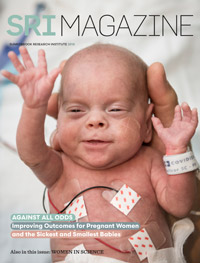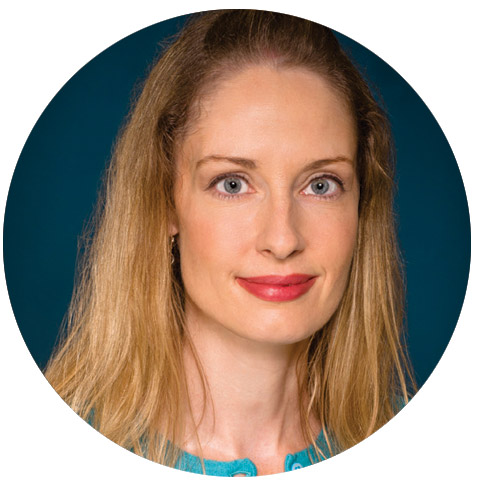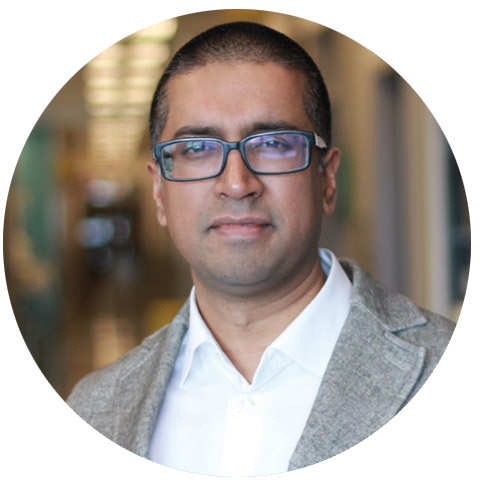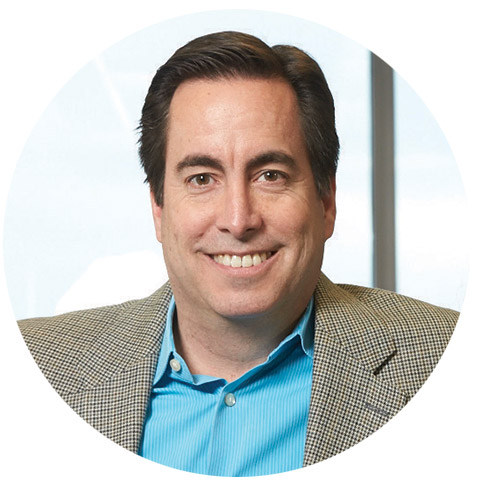Ask a scientist

“What is your guilty pleasure?”
Clare Atzema
I’m addicted to puzzles. Old fashioned, 1,000+ piece puzzles. It’s a controlled addiction—I don’t do them often, because I know that once I start I won’t be able to tear myself away, and everything else will be put on hold for a few days, until I finish it. I get to bed well past 2 a.m. on those nights. I’m methodical about how I approach one (border first, always!). I load the dishwasher in the same way, I’m embarrassed to admit.
I also love coming up with new cocktails. I like to have a new one for every dinner party. I’ve bought old-fashioned 1950s coupe cocktail glasses, which I’m certain make my cocktails taste better. I make mocktails for my kids, and they think I’m the female equivalent of Tom Cruise in Cocktail. I love that it gives me street credibility in their eyes!
Lately, I’ve been binge-watching The Handmaid’s Tale. It’s riveting, in a terrible way. I’m almost done: I’ve encountered that bittersweet place where you know it’s going to be over soon, so you kind of don’t want to keep watching, to save some for later. . . .
Atzema is a scientist in Evaluative Clinical Sciences and the Tory Trauma Research Program at SRI. This spring, she secured a Project Grant from the Canadian Institutes of Health Research of almost $530,000 over three years. She will use the fund to create an online appointment scheduling tool for emergency departments to improve the transition between emergency and primary care.
Chinthaka Heyn
My guilty pleasure is a lazy Sunday (when I am not on call!). It generally starts off with coffee and The New York Times at home. My wife (a Sunnybrook internist and the brains in the family) reads the paper, and I usually stick to the magazine. One of my favourite sections is “Diagnosis,” where a real-life medical mystery is told. We sometimes work through the case together in a bit of a competition to see who can make the right diagnosis: neuroradiologist versus internist. You can guess who usually wins that one.
After, we like to head out to the Brickworks, grab another coffee and lunch at the café or food vendors, and peruse the artisan market. On the way home, we might hit up our favourite fishmonger, butcher and bakery on Bayview Avenue and pick up a few things for dinner. Cocktails and a nice glass of Pinot on our patio to end the day.
I should add that since we had a baby girl this past May, much of the above has been significantly curtailed.
Heyn is an associate scientist in Physical Sciences and the Odette Cancer Research Program at SRI. His research focuses on bioheat exchange, the study of heat transfer within living things. Last year, he led a Toronto group that was the first to measure the temperature of flowing blood noninvasively in mice with a novel MRI contrast agent. The team's findings were presented in NMR in Biomedicine.
Juan Carlos Zúñiga-Pflücker
I derive enormous pleasure from seeing those working in my laboratory succeed in their research endeavours, so much so that I almost feel guilty about this vicariously earned enjoyment.
When the time comes to do things outside research, I find myself enjoying a round of golf, which is a bit of a guilty pleasure, as it does take many hours to play. However, the game provides a total change of scene and pace, while offering a new set of challenges and rewards.
Having a great drive or nailing an approach shot next to the flag gives you a great feeling, which unfortunately does not happen all the time, but like a “Skinner box,” partial reinforcement does make golfing a very addictive game.
When winter comes around, my other guilty pleasure is watching old movies and, whenever possible, indulging in a streaming binge of Homeland or Stranger Things.
Of course, that’s only if I’m not listening to the masterful tunes of Abba.
Zúñiga-Pflücker is a senior scientist in Biological Sciences at SRI and chair of the department of immunology at the University of Toronto. He holds the Canada Research Chair in Developmental Immunology. This year, he received a Disease Team Grant of $250,000 from the Ontario Institute for Regenerative Medicine, to further his work to establish a more efficient way to generate new T cells in people who have lost them owing to a bone marrow stem cell transplant.
Photos: (Left) Doug Nicholson / (Centre) Alisa Kim / (Right) Nation Wong






